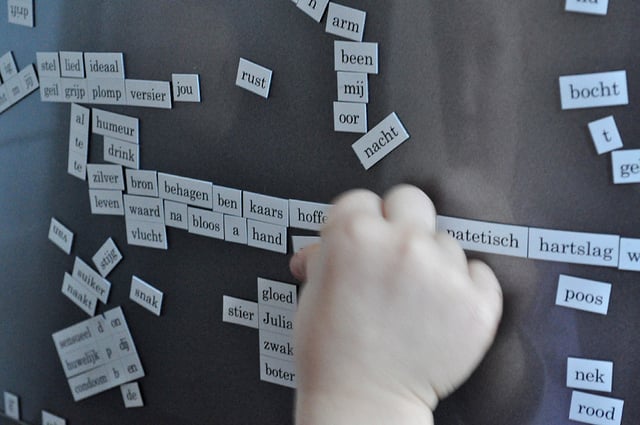10 Words We Need in the English Language

Photo via Flickr
Ever had one of those moments where you’re telling your friends a story, but you’re struggling for the words to describe the specifics of the situation? A lot of the time, they are common, everyday feelings, and yet, we simply do not have the exact word for them in English. For times like these, we have here a list of 10 fascinatingly specific foreign words which we really need to have in the English language.
Remember, the change starts with you (hint, hint).

Photo via Pixabay
1. L’esprit de l’escalier (French) or Treppenwitz (German)
Imagine you’ve had an infuriating argument with a friend and their last biting remark is still echoing in your mind. You’re fuming, furious, speechless. And then, suddenly, 3 hours after the debate is over: BAM! The perfect comeback finally hits you!
You’ve just experienced ‘staircase wit’ – coming up with a good response to an argument only when everything is over.
2. 让 ràng (Chinese)
Sometimes it’s the little moments of generosity which truly mean the most.
When there’s something you really want – generally something quite small, like a piece of food – but you choose to give it away to your partner, child, or family, this act of ‘giving with a little bit of sacrifice’ – is known as 让 ràng.

Photo via Pixabay
3. Pena ajena/Vergüenza ajena (Spanish)
Do you know someone who is so oblivious that they just seem to feel no sense of embarrassment for themselves? Do you ever feel as though you have to be embarrassed for them, because they are so completely unaware? That’s vergüenza ajena, or ‘secondhand embarrassment’ for you.
4. Verschlimmbessern (German)
Literally, the word translates to ‘aggravated improvement’. Verschlimmbessern is the unfortunate act of trying to fix something, like a disastrous meal, or a broken relationship, but somehow just ending up making it worse.
5. Gigil (Tagalog)
You will probably come across this feeling if you just imagine a small kitten wrapped in a fluffy blanket, or a chubby baby sat in a pram. This is gigil – struggling to control the desire to pinch the cheeks of something cute (which, more accurately, is panggigigil).
However, the same word can also be applied when you are frustrated, and thus feel unable to control yourself. In such cases, it is called nanggigigil.
6. Почемучка pochemuchka (Russian)
‘How does this work?’ ‘Why does it do that?’ ‘What is this?’ ‘When are we leaving?’
Pochemuchka is the perfect word to describe someone with far too many questions. Literally, the word means ‘why-er’, and it stems from the Russian word почему pochemu, meaning ‘why’.

Photo via Public Domain Pictures
7. Culaccino (Italian)
A beautiful sounding word for a remarkably simple, and somewhat irritating little thing. A culaccino is the ringed mark left behind by a moist glass when it is set on a wooden table. It is derived from the word culo, meaning ‘butt’ or ‘bottom’, so a culaccino is the ‘little bottom’ of the glass.
8. Tartle (Scottish)
If you’re bad with names, then you’ve probably tartled quite often. This is a word used to describe the hesitation of remembering someone’s name, particularly when you have already been introduced to them before. Always a little awkward.
9. Jayus (Indonesian)
‘The future, the present and the past walked into a bar. Things got a little tense.’ Yes, some jokes really are that bad, and chances are, they’ve been told badly too. But sometimes, that’s exactly what makes you burst out laughing anyway. A jayus is one of those unfunny/funny jokes you just can’t help but crack a smile at.
10. Yoko meshi (Japanese)
Now this is something all language learners can relate to. Literally, it translates to ‘a meal eaten sideways’, but it actually relates to the stress and anxiety of speaking a foreign language. Trying to remember all those new vocabulary, phrases and grammar is by no means an easy task. However, with determination and practice, even a yoko meshi will eventually become just meshi (‘meal’) eaten normally!
Of course, this list does not even begin to cover all the weird and wonderful words we are lacking in the English language. What kind of everyday emotion do you wish we had a word for in English? Which foreign words do you know have no English equivalent? Write us a comment below and let us know!
